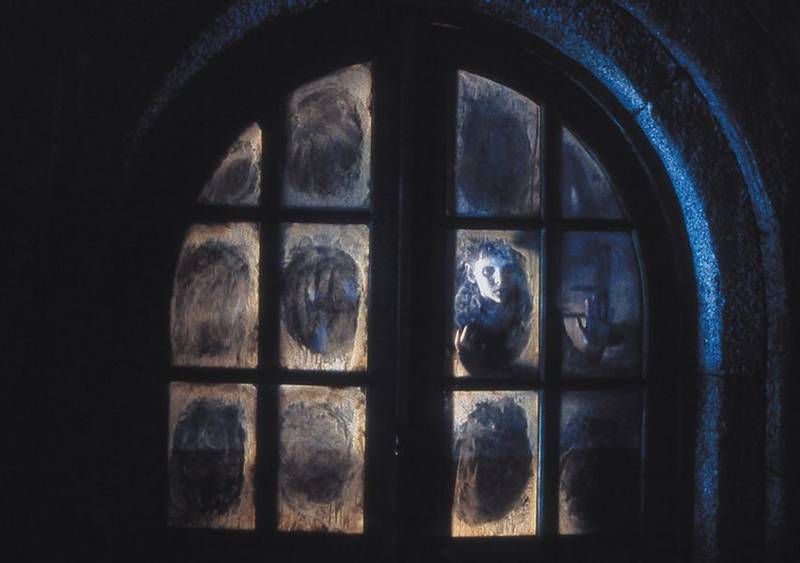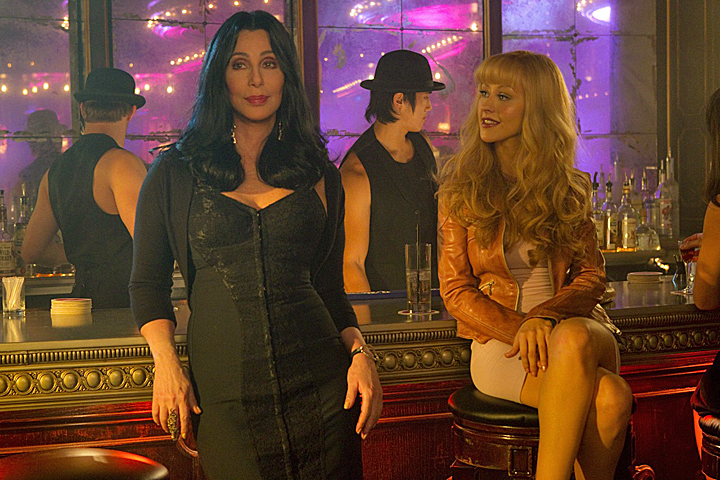Q. Just read your Great Movie addition of Del Toro’s “Pan's Labyrinth,” with its discussion of the New Mexican Cinema. Although you didn’t mention it, I wanted to point out that Alfonso Cuaron’s absolutely superb G-rated film “A Little Princess” from 1995 is a great companion to “Pan’s Labyrinth.” They are worlds apart in their execution and yet strikingly similar in many ways, as both follow a young girl escaping to fantasy worlds in the face of the harsh reality of war. Both movies stand on their own, but seeing them again recently in the context of knowing more about the collaboration and friendship of the directors has added greatly to my appreciation of each.
Kevin Park, Lexington, Ky.
A. And there’s also del Toro’s “The Devil's Backbone” (2001), a ghost story set in an orphanage at the time of Franco. Both directors seem interested in younger children faced with a combination of political and supernatural problems. I loved “A Little Princess” and also don’t miss Cuaron’s “Great Expectations” — once more, two lonely children in a frightening house.
Q. As much as I greatly admire “Pan’s Labyrinth,” don’t you think it’s a bit early to add it to your Great Movies list? The fact that it’s less than a year old makes me wonder if it should be placed on the same list as so many revered classics that have not only demonstrated what film can do, but have influenced and shaped modern cinema. Shouldn’t at least a little time pass before such a recent movie is declared a classic?
Philip Pangrac, Fort Polk, La.
A. The same thought occurred to me, and Stephen Mack of Washington makes a similar argument. He also noticed how quickly I chose “Moolaade,” but the timing there was inspired by the death of its director, Ousmane Sembene. I missed a lot of movies during my illness, have been catching up with the best or most promising ones, and thought “Pan’s Labyrinth” was a masterpiece when I saw it at Cannes 2006. I have had an informal rule that 10 years should pass before a film qualified as a Great Movie, but illness has caused me to rethink that time span, and so with a few extraordinary recent films I am going to bend the rule a little. Of course I will not neglect older classics: Coming up soon, “El Topo.”
Q. In your zero-star review of “September Dawn,” you stated that there must be a more thoughtful and insightful way to consider the tragedy of the Mountain Meadows Massacre. There is: A film professor of mine at the University of Utah produced a feature-length documentary about the massacre entitled “Burying the Past: Legacy of the Mountain Meadows Massacre,” which has won several awards. The film speaks with descendants of the 17 children who were spared death that day in 1857 and explores in an intelligent and sensitive manner the deep emotions that continue to haunt them. The Web address is www.buryingthepast.com.
Aaron Allen, Los Angeles
A. Several readers have told me about Brian F. Patrick’s film. The film finds that Mormons did indeed commit the massacre, while drawing a line between church teachings and the actions of a fanatic group of fringe-dwellers.
Q. I would like to know the name of a hilarious foreign comedy that I saw. It was about an actor who starts out on top of a can of milk that a cow bumps into, and he rolls down the hill. The rest of the film has birds, flies and bees turning against him. I would like to watch it again, but I don’t know the name of the film.
Lawrence Perry, Jackson, Mich.
A. The rules for the Answer Man clearly state that I will not try to identify some film that you once saw, based on your memories of it. A wise rule. No doubt one of our erudite readership will know your answer. I surrender and provide this service, oh, once a year.
Q. Many years ago, I saw Rainer Werner Fassbinder’s masterpiece “Berlin Alexanderplatz.” I would love to see it again. However, as far as I know, it is not available on DVD.
Mary Margaret, Chicago
A. Fassbinder’s 941-minute, 1980 epic will be released Nov. 13 by Criterion. Based on a classic novel and originally shown on German television, it has been digitally restored shot by shot, and the seven-disc edition will add lots of bells and whistles. This is generally considered Fassbinder’s best work, a towering achievement. Watch it like you did Kieslowski’s “Decalogue,” one episode a day.
Q. “Sunshine” is a movie I dreamed about for days after I saw it. I found it interesting that several Answer Man topics focused on the accuracy of the effects of vacuum on a human being, and none on the surprising presence of gravity. Why would such a terrific movie choose to ignore such a fundamental?
Steve Wierzbowski, Chicago
A. True, something was preventing the solarnauts from floating around, but what? Not likely that gravity will be controlled so soon in the future.
Q. I read your “Superbad” review and agree that it was a fun movie. The only thing is, the times have changed since you were in school and third base no longer means what you think it means. I don’t know of a classy way to explain third base now, but Bill Clinton should give you a hint. Unless of course that’s what third base meant back then.
Jay Sketch, Torrance, Calif.
A. I was thinking of shortstop.
Q. It’s great to see those old debates between you and Siskel and Roeper in the Balcony Archives. While I generally agree with your opinion, there have been films where I think you missed the point. I’d just like to state my (continued) disappointment on your misread of David Fincher’s “Fight Club.” This is one of the best films of the 1990s and one of my favorite films of all time, and you completely missed the point.
Jason Callen, Milwaukee
A. You know what I did? I took “The Fight Club” to the University of Colorado at Boulder for my annual shot-by-shot analysis at the Conference on World Affairs, and went through it over 10 hours with about 800 students. And I was still convinced I was right.
Q. I just listened to the commentary on the new DVD of Edgar Wright’s “Hot Fuzz.” The filmmakers mention that while writing the screenplay they were reading your Little Movie Glossary book, which they referred to as “essential reading.” I found this flattering as I am in that book. Just wondering if you have had a chance to see the film.
John Weckmueller, Milwaukee
A. Not yet, but I read the book.
Q. Why does Michael Moore get so much flak for the editing in his films? All documentaries are edited by someone with an agenda. I’ve even seen people use quotations around the word documentary when describing his films, as if they are not really documentaries.
Jolon Buchbinder, Cincinnati, Ohio
A. Those people do not know what a documentary is. Many times, it documents opinions and arguments, not “facts” (and yes, there I will use quotation marks). They complain not about what the documentarian did, but what he didn’t do that they would have done.












